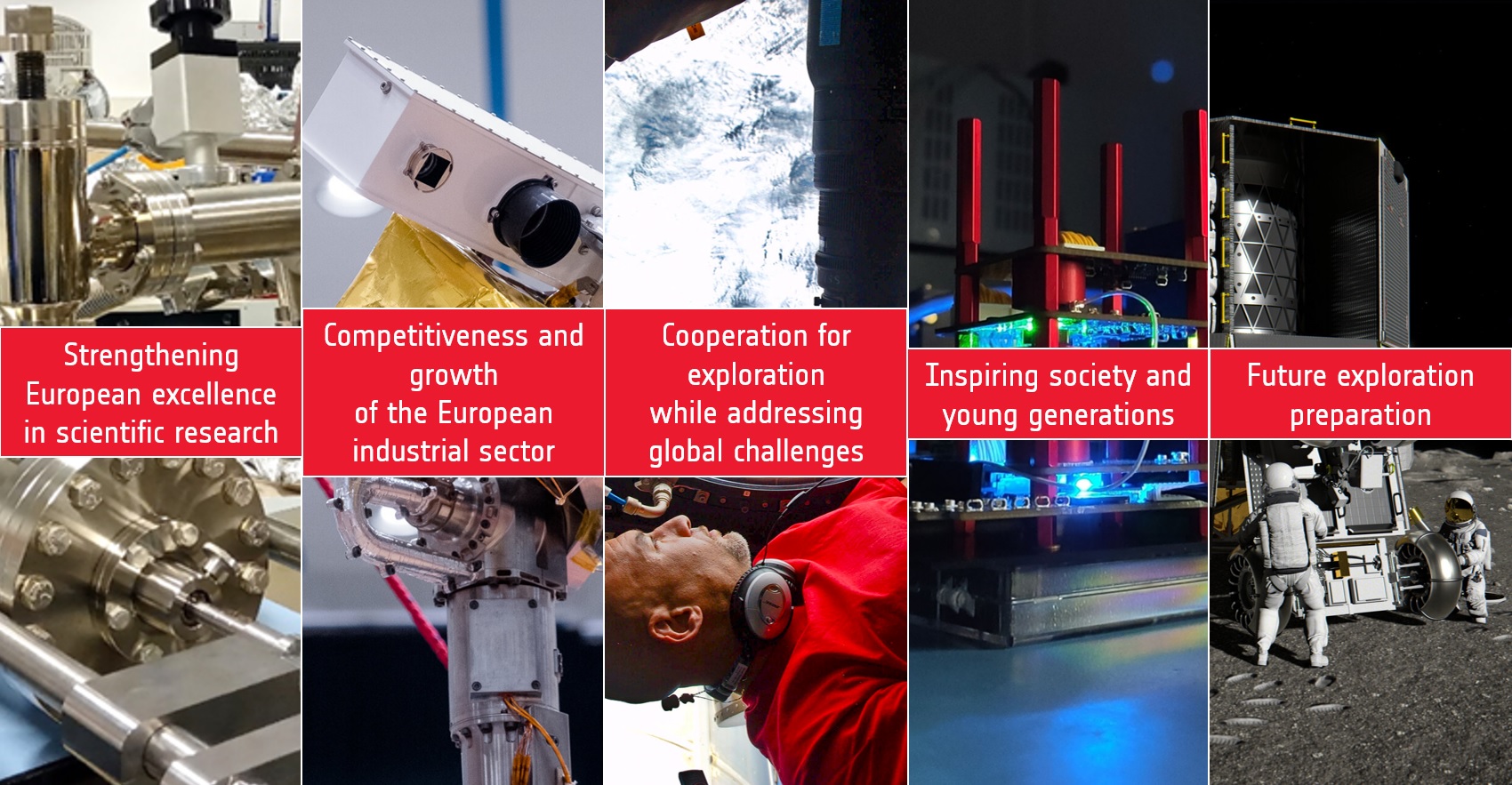Space exploration develops a large number of technologies that will benefit other fields with key applications on Earth, such as healthcare, geology, and meteorology. It also catalyses the attention of the young generations towards science and engineering.
The strategic objectives that steer Europe’s exploration strategy, agreed by ESA’s council at ministerial level in 2014, they represent the European values of making space exploration an activity with extremely positive impacts in the following benefits categories.
- Science – Strengthening European excellence in scientific research through opportunities for in-situ investigations, and the development of relevant instrumentation and enabling technologies.
- Economy (knowledge and technology) – Contributing to the competitiveness and growth of European industry by pushing the frontiers of knowledge and developing new technologies ready to be applied in other fields of economic value.
- Global cooperation – Establishing a worldwide cooperative framework to carry out several specific space exploration projects, involving interested partners in each case.
- Inspiration – Attracting society and in particular young generations to expand the limits of our knowledge, to study natural sciences and engineering, to share the values of global cooperation in space and to prepare a sustainable human presence in the Solar System beyond Earth.
- Future exploration preparation – Ensuring that future opportunities exist for Europe to participate in exploration missions, with roles that deliver benefits.
For achieving these objectives and for ensuring an adequate return of ESA Member States investment to society, ESA applies a systematic management approach for defining, delivering, and monitoring expected Terrae Novae outcomes/benefits to society, addressing the scientific, economic, political and public dimension of space exploration.

2021 dashboard of outcomes/benefits.







